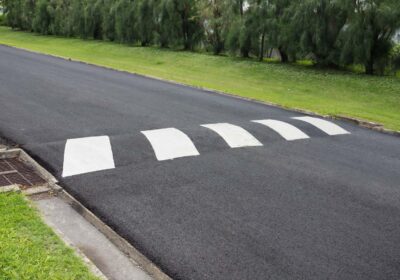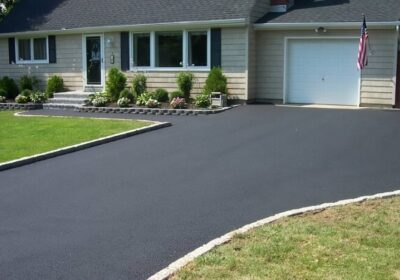Concrete vs. Asphalt: Comparing Longevity and Durability
Concrete and asphalt are two popular materials used for constructing roads, driveways, and parking lots. Both materials offer unique characteristics and benefits, but one common question that arises is: Which lasts longer? In this article, we’ll compare the longevity and durability of concrete and asphalt to help you make informed decisions when choosing the right material for your paving projects.
Longevity of Concrete
Concrete is renowned for its durability and longevity, making it a popular choice for various paving applications. Some key factors that contribute to the longevity of concrete include:
- Strength: Concrete is a rigid material that can withstand heavy loads and traffic without significant deformation or damage. Its compressive strength and structural integrity contribute to its long-term performance.
- Resistance to Weathering: Concrete is highly resistant to weathering, UV radiation, and temperature fluctuations, which helps maintain its appearance and structural integrity over time. Properly installed and maintained concrete surfaces can withstand harsh environmental conditions.
- Minimal Maintenance: Concrete requires minimal maintenance compared to asphalt. Routine cleaning and occasional sealing are typically sufficient to preserve the appearance and functionality of concrete surfaces.
- Long Service Life: Concrete pavements have a long service life and can last for several decades with proper installation and maintenance. The durability of concrete makes it a cost-effective investment in the long run.
Durability of Asphalt
Asphalt, also known as blacktop or bitumen, is a flexible pavement material commonly used for roads and driveways. While asphalt offers certain advantages, its longevity and durability may vary depending on several factors:
- Flexibility: Asphalt is a flexible material that can accommodate slight movements and fluctuations in the underlying soil, making it suitable for areas with freeze-thaw cycles and soil movement. Its flexibility helps reduce the risk of cracking and damage.
- Quick Installation: Asphalt can be installed more quickly than concrete, allowing for faster project completion and reduced downtime. However, rapid installation may compromise long-term durability if proper techniques and materials are not used.
- Regular Maintenance: Asphalt requires regular maintenance to prolong its lifespan and prevent deterioration. Sealcoating, crack sealing, and periodic resurfacing are essential maintenance activities that help protect asphalt surfaces from moisture, UV radiation, and wear.
- Limited Service Life: While asphalt pavements have a relatively long service life, they typically require more frequent maintenance and may need to be resurfaced or replaced every 10 to 20 years, depending on usage and environmental factors.
Factors Affecting Longevity
Several factors influence the longevity and durability of both concrete and asphalt pavements:
- Climate: Climate plays a significant role in the performance of pavement materials. Concrete may be more suitable for regions with extreme temperature fluctuations, while asphalt performs well in moderate climates.
- Traffic Load: The amount and type of traffic exerted on the pavement impact its longevity. Heavy vehicles and high traffic volumes can accelerate wear and deterioration, affecting both concrete and asphalt pavements.
- Installation Quality: Proper installation techniques and materials are essential for maximizing the longevity of pavements. Poorly constructed pavements may develop cracks, potholes, and other defects prematurely, regardless of the material used.
- Maintenance Practices: Regular maintenance and timely repairs are crucial for preserving the condition of both concrete and asphalt pavements. Neglected pavements are more susceptible to damage and deterioration over time.
Conclusion
In summary, both concrete and asphalt offer durability and longevity, but the choice between the two depends on various factors such as climate, traffic load, installation quality, and maintenance practices. Concrete pavements are known for their strength, weather resistance, and minimal maintenance requirements, making them suitable for long-term applications. On the other hand, asphalt pavements are flexible, quick to install, and cost-effective, but they may require more frequent maintenance and have a shorter service life compared to concrete. By considering these factors and consulting with paving professionals, property owners can make informed decisions when selecting the appropriate material for their paving projects. Ultimately, proper installation, maintenance, and care are essential for maximizing the longevity and performance of both concrete and asphalt pavements.




Leave a Reply